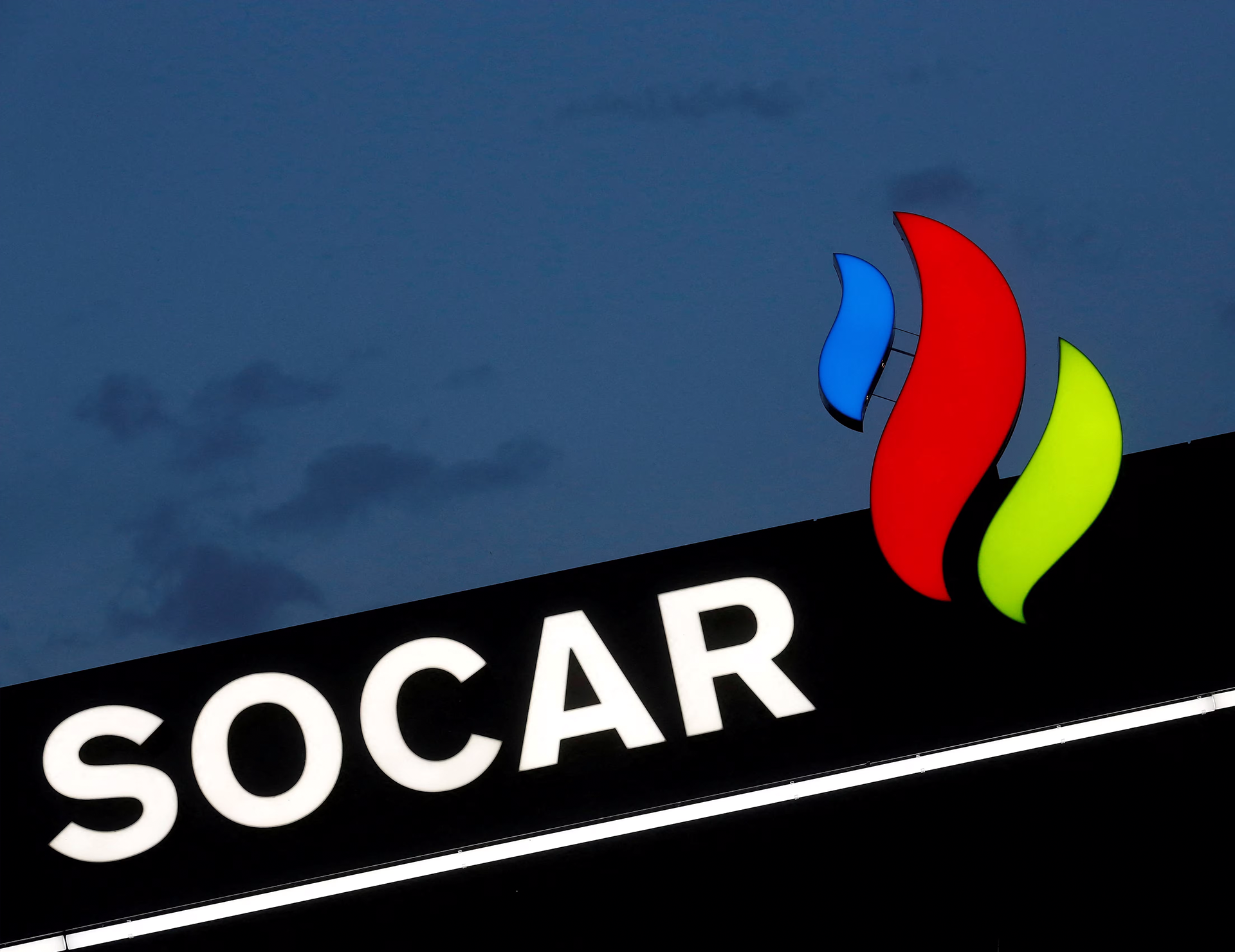The strategic significance of the SOCAR–IP acquisition for Italy and the new European energy order

The announcement made on 23 September 2025 regarding the purchase of Italian Petroli (IP) by Azerbaijan's state oil company SOCAR signifies more than merely a corporate deal. It illustrates the transformation of the Italian and European energy sectors. Two years after the rupture with Russian hydrocarbons, the continent's energy map is redrawn through diversification, new supply corridors, and alternative partners. Yet, this shift, while aiming at fostering a higher degree of autonomy, also risks exposing the European system to energetic asymmetries.
Italy, strategically positioned at the heart of this transformation, serves as a crucial gateway for Caspian routes in the Mediterranean Sea. Rome's careful balance between aligning with the EU's energetic agenda and securing resilience and diversification is pivotal. The SOCAR-IP deal, a nationally driven initiative conducted within the EU legislative framework, embodies Italy's strategic importance.
Over the past ten years, SOCAR has grown from a local supplier into a key player in Europe’s energy security landscape.
Thanks to the Southern Gas Corridor (SGC), especially the Trans Adriatic Pipeline (TAP) ending in Southern Italy, Azerbaijan has become a vital part of Europe’s strategy to diversify its energy sources. The recent acquisition of IP isn't just a single deal; it's a step forward in expanding this infrastructure into retail and downstream activities.
With about 4,500 fuel stations and storage facilities, SOCAR is on track to become one of Italy’s top five distributors, challenging giants like ENI, and changing the way prices and logistics work in the local market.
The transaction has ignited a heated debate within Italy. The national media has sounded the alarm, warning of national assets falling under foreign control. However, the broader policy context suggests a different reading, reflecting the new Rome's pragmatic approach.
The SOCAR–IP case thus captures a wider European dilemma: energy autonomy now relies not on separation, but on managing a growing web of interdependence among states and strategic actors.
Italy's perspective: symbolism, media, and sovereignty
In Italy, the SOCAR-IP deal represented not only an economic operation but a symbolic event. Many journalists and outlets saw it as the moment when the country lost its first independent energy company to a foreign state actor. This narrative resonated deeply in the Italian industrial consciousness, where family-led firms have long represented the economic fabric of the state.
The reaction exposed a strong fracture in the Italian political landscape. While Italy has long positioned itself as a bridge between Europe and the wider Mediterranean, actively promoting diversification and attracting investments to secure stability, each step toward openness triggers an instinctive internal concern for sovereignty. The loss of a national energy champion is perceived not only as an economic transition but as a constraint on the state's ability to plan, negotiate, and exert control over its strategic assets.
National mainstream outlets and several political parties have echoed these concerns, advocating for the activation of the government's Golden Power. This mechanism, though limited, could safeguard critical assets, ensuring they remain under national control while still maintaining an open market for foreign capital. The SOCAR-IP case will test the offset once again, encapsulating Italy's energy posture: pragmatic, open, but constantly negotiating between sovereignty and interdependence.
Within this reflection, Italy might consider refining its tools rather than shutting its doors altogether. By implementing stronger screening procedures, more explicit rules for strategic oversight, and guarantees on data, stock, and infrastructure control, Italy can remain open while safeguarding its autonomy. Ultimately, Rome’s ability to attach enforceable conditions to foreign acquisitions, such as reserve obligations and transparency on foreign subsidies, will influence whether diversification serves as a strategic asset or a vulnerability.
The European puzzle of diversification
As Europe's energetic mix remains strongly dependent on imports, the shutdown of the northern pipelines as a consequence of the Ukrainian war has forced member states to redirect supply channels. However, new external partnerships, such as those with Qatar, Algeria, and Azerbaijan, have emerged in the European market. These partnerships have the potential to replace former streams coming from Russia, offering a hopeful outlook for the future of European energy.
Across the Union, diversification has been primarily pursued through supply agreements and infrastructure expansion. Germany state-owned company SEFE (Securing Energy for Europe) has turned, in the last July, to long term LNG Gulf producers, signing a deal coverig the delivery of 0.7 million tonnes of LNG with Abu Dhabi National Oil Company (ADNOC); Spain has deepened its cooperation with North Africa markets, notably through the Sonatrach company and the Megdaz pipeline which connects Algeria to Spain; France, on its part, has instead reinforced its national role, nationalizing local champions, like EDF and Engie, bolstering the capacity of the state-controlled utilities.
While still subjected to the Golden Power, which, however, does not usually orient industrial strategies, Italy's path stands apart. Other national states have diversified through contracts with state-backed partnerships; Rome has allowed a foreign state-owned company to enter its domestic market directly. The acquisition of IP by Socar represents, in these terms, the first complete entry of an EU non-state actor into a crucial energy sector of a primary EU member.
Legally speaking, the deal falls within the European framework, with Article 194 of the Treaty on the Functioning of the European Union giving member states the authority to determine their own energy mix and ownership structures. Nevertheless, it could highlight a possible new frontier in European openness, questioning the relationship between supply security, international cooperation, and control.
Governing interdependence: IP-SOCAR and its broader national and European meaning
Broadly speaking, the SOCAR-IP acquisition captures the new geometry of power shaping the European energy landscape, where ownership, influence, and dependency no longer follow the common East-West divide but flow through different corridors of interdependence.
For Italy, the decision marks both continuity and rupture. It reflects the country's pragmatic search for security and geopolitical positioning in an evolving and uncertain market, influenced by instability and crisis. At the same time, it also confirms the gradual erosion of national industry capacity from strategic sectors, making Rome a mediator through foreign actors rather than a producer.
This pragmatism is not limited to the SOCAR case. Over the past years, Prime Minister Giorgia Meloni has intensified Italy's outreach to the Caspian and Central Asia, presenting these partnerships as part of Italy's contribution to diversification. In reality, they could also suggest Rome's eastward pivot: a form of energy diplomacy that privileges access and flexibility over strategic control.
For Europe, the lessons run deeper, as the deal reveals how energy diversification could evolve from a question of supply and diversification to one of control. While the Union negotiates the boundaries of autonomy between Brussels and the member-states, non-EU state actors could invest significant capital into the market, reshaping the internal balance of power in the field of energy. The potential significance of the SOCAR-IP acquisition lies here. While it is a story of dependency and loss, it could also signal transformation, showing how EU member states are beginning to respond to the energy crisis by reorganizing their priorities and domestic energy markets under external influences.
Ultimately, the SOCAR–IP case could contribute to shaping how Europe approaches the governance of strategic sectors in the years ahead.
It highlights the need for stronger, coordinated FDI screening at the EU level, not to centralize control, but to ensure that foreign state-backed acquisitions are evaluated through shared security and transparency criteria. The forthcoming reform of the EU’s FDI Screening Regulation (Reg. 2019/452) could ultimately aim precisely at this: harmonizing procedures among member states, clarifying how strategic assets are assessed, and improving cooperation between national authorities and the European Commission.
By anchoring its openness within this framework, Italy can demonstrate that autonomy does not require isolation, but robust governance. If Rome manages to preserve a degree of regulatory independence, maintaining strategic oversight while applying transparent national and European rules, it could serve as a model for controlled openness, showing how the EU can balance market access with the protection of collective interests.







